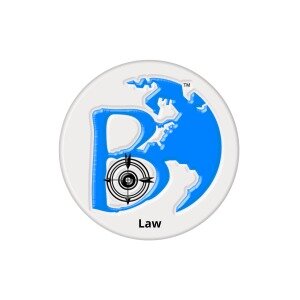Best ESG Advisory & Compliance Lawyers in Jamaica
Share your needs with us, get contacted by law firms.
Free. Takes 2 min.
Or refine your search by selecting a city:
List of the best lawyers in Jamaica
About ESG Advisory & Compliance Law in Jamaica
Environmental, Social, and Governance (ESG) Advisory & Compliance has become increasingly important in Jamaica's legal and business landscape. ESG refers to a set of standards for a company’s operations that socially conscious investors use to screen potential investments. In Jamaica, ESG compliance is growing in significance due to rising regulatory requirements, investor interest, and global market expectations for responsible business practices. Companies operating in Jamaica are expected to meet specific standards in areas ranging from environmental protection and waste management to labor practices, anti-corruption measures, and corporate governance. Legal professionals specializing in ESG help organizations navigate these evolving requirements, ensuring they maintain compliance with local laws and international best practices.
Why You May Need a Lawyer
There are several common situations in which individuals or businesses in Jamaica may require legal help with ESG Advisory & Compliance. These include:
- Developing policies and procedures that align with local and international ESG standards
- Navigating complex environmental regulations and permits
- Ensuring compliance with labor and workplace laws
- Addressing issues related to anti-corruption, bribery, and ethical business practices
- Responding to ESG-related investigations or enforcement actions
- Disclosing ESG risks and actions to shareholders, regulators, or the public
- Conducting ESG due diligence for mergers, acquisitions, or partnerships
- Designing effective reporting systems for ESG performance
- Managing reputational risks associated with ESG shortcomings
- Implementing strategies to avoid financial penalties associated with non-compliance
Experienced ESG lawyers can assess your unique situation, offer tailored advice, and help you build a strong foundation for sustainable business practices in Jamaica.
Local Laws Overview
The ESG legal landscape in Jamaica is shaped by a mix of local legislation, international commitments, and industry-specific guidelines. Key elements include:
- Environmental Laws: The National Environment and Planning Agency (NEPA) regulates environmental protection, resource management, and sustainable development. Companies must comply with regulations on waste disposal, emissions, land use, and conservation.
- Labor and Social Legislation: The Labor Relations and Industrial Disputes Act, along with the Occupational Safety and Health legislation, set standards for fair employment, workplace safety, and social responsibility.
- Corporate Governance: The Companies Act of Jamaica outlines obligations for transparency, accountability, and ethical management of corporations.
- Anti-Corruption: Laws such as the Proceeds of Crime Act and the Corruption Prevention Act address issues of bribery, corruption, and money laundering, requiring strong corporate compliance frameworks.
- Reporting and Disclosure: There is a growing trend towards mandated ESG risk disclosures for public companies, and non-financial reporting is expected to become more prominent in future legislative updates.
Jamaica is also a signatory to various international agreements that influence ESG standards, including the Paris Agreement on climate change, and has adopted elements of global ESG frameworks at the national level. Due to these evolving requirements, ongoing legal guidance is essential to remain compliant.
Frequently Asked Questions
What does ESG mean in the Jamaican context?
ESG stands for Environmental, Social, and Governance criteria. In Jamaica, it refers to regulatory and voluntary standards businesses must meet in areas like environmental impact, labor practices, community engagement, and corporate ethics.
Are there mandatory ESG regulations for companies in Jamaica?
Some aspects of ESG are regulated by law, especially environmental protections and labor standards. Other aspects, such as specific reporting frameworks, are often encouraged through policy and market expectations rather than mandated law, but future legislation may expand requirements.
What government bodies regulate ESG matters in Jamaica?
The National Environment and Planning Agency (NEPA), Ministry of Labour and Social Security, Financial Services Commission, and anti-corruption authorities all play roles in regulating areas relevant to ESG compliance.
What are some common ESG risks faced by Jamaican businesses?
Common risks include environmental violations, non-compliance with labor laws, governance failures, bribery or corruption accusations, and failure to properly disclose ESG-related information to stakeholders or regulators.
Is ESG reporting required for public companies in Jamaica?
While comprehensive ESG reporting is not currently mandatory for all companies, listed entities and those operating in sensitive sectors may have specific disclosure obligations, and voluntary reporting is recommended as best practice.
What penalties can result from non-compliance with ESG regulations?
Penalties range from fines and enforcement actions for environmental or labor violations to reputational harm, loss of business opportunities, and even revocation of business licenses in severe cases.
How can companies ensure they meet ESG compliance requirements?
Engaging legal professionals who specialize in ESG, regularly reviewing and updating company policies, training staff, carrying out internal audits, and staying updated with evolving regulations are key steps.
Are there industry-specific ESG requirements in Jamaica?
Yes, sectors such as mining, tourism, and agriculture may have additional ESG regulations or guidelines that address their unique environmental and social responsibilities.
How does ESG compliance benefit Jamaican businesses?
It helps mitigate legal risks, enhances reputation, attracts ethical investors, and positions the business for success in a market increasingly focused on sustainable and responsible practices.
How can I find a qualified ESG lawyer in Jamaica?
You can start by contacting the Jamaican Bar Association, referrals from industry peers, or researching law firms specializing in corporate and environmental law with demonstrated ESG expertise.
Additional Resources
The following organizations and government bodies provide valuable information and support for ESG Advisory & Compliance matters in Jamaica:
- National Environment and Planning Agency (NEPA)
- Ministry of Labour and Social Security
- Financial Services Commission (FSC)
- Jamaica Stock Exchange (JSE)
- Jamaican Bar Association
- Jamaica Chamber of Commerce
- Environmental Foundation of Jamaica
- Caribbean Association of Industry and Commerce
These bodies offer resources, guidance, and regulatory updates relevant to businesses seeking to improve ESG compliance in Jamaica.
Next Steps
If you need help with ESG Advisory & Compliance in Jamaica, consider the following steps:
- Assess your business’s ESG risks by reviewing current practices and identifying potential gaps in compliance
- Contact a lawyer or law firm with experience in ESG, environmental, labor, and corporate governance matters
- Prepare relevant documents and information about your business’s activities, policies, and any prior compliance issues
- Discuss your specific needs and objectives with your legal advisor, including desired outcomes and timeframes
- Implement recommended changes to policies, practices, and reporting to meet local and international ESG standards
- Continue to monitor regulatory developments to ensure ongoing compliance and leadership in responsible business conduct
Taking a proactive approach with the help of legal experts will position your business for long-term success and compliance in Jamaica’s evolving ESG landscape.
Lawzana helps you find the best lawyers and law firms in Jamaica through a curated and pre-screened list of qualified legal professionals. Our platform offers rankings and detailed profiles of attorneys and law firms, allowing you to compare based on practice areas, including ESG Advisory & Compliance, experience, and client feedback.
Each profile includes a description of the firm's areas of practice, client reviews, team members and partners, year of establishment, spoken languages, office locations, contact information, social media presence, and any published articles or resources. Most firms on our platform speak English and are experienced in both local and international legal matters.
Get a quote from top-rated law firms in Jamaica — quickly, securely, and without unnecessary hassle.
Disclaimer:
The information provided on this page is for general informational purposes only and does not constitute legal advice. While we strive to ensure the accuracy and relevance of the content, legal information may change over time, and interpretations of the law can vary. You should always consult with a qualified legal professional for advice specific to your situation.
We disclaim all liability for actions taken or not taken based on the content of this page. If you believe any information is incorrect or outdated, please contact us, and we will review and update it where appropriate.
Browse esg advisory & compliance law firms by city in Jamaica
Refine your search by selecting a city.










